Leather Sectional Sofa Couch Guide - Luxury and Comfort
The leather sectional sofa couch represents the pinnacle of living room furniture, combining luxurious materials with versatile configurations to create a centerpiece that balances style, comfort, and functionality. These sophisticated pieces offer ample seating for family and guests while making a strong design statement that elevates any living space. The natural beauty of leather, with its unique texture and aging characteristics, adds depth and character that improves over time.
This comprehensive guide explores the world of leather sectional sofas, helping you navigate the various styles, configurations, and quality considerations involved in selecting the perfect piece for your home. We examine different leather types, construction methods, and design features to provide the knowledge needed to make an informed investment in furniture that will serve your household for years to come while maintaining its aesthetic appeal.
Our Top Leather Sectional Sofa Couch Recommendations
⚠️ AFFILIATE DISCLOSURE: This website contains affiliate links. As an Amazon Associate, we earn from qualifying purchases. If you make a purchase through these links, we may receive a small commission at no additional cost to you. Read our full affiliate policy.
Leather Sectional Sofa Couch Comparison & Recommendations
Which Leather Sectional Fits Your Lifestyle?
🏆 Best Overall: Top-Grain Leather Sectional
Premium Comfort Design
💰 Best Value: Protected Leather Sectional
Family-Friendly Design
⭐ Premium Choice: Full-Aniline Leather
Luxury Collection
Comparison Summary
- Leather Quality: Options range from bonded leather for budget to full-aniline for luxury
- Construction: Look for solid wood frames, high-density foam, and quality stitching
- Configuration: Modular designs offer flexibility, while fixed configurations provide stability
- Comfort Features: Consider seat depth, cushion firmness, and back support design
- Style Options: Choices include modern, traditional, transitional, and contemporary designs
Leather Sectional Sofa Advantages & Considerations
Understanding both the benefits and practical considerations of leather sectional sofas helps determine if this furniture type aligns with your lifestyle, budget, and long-term expectations. Here's a balanced analysis to guide your decision-making process.
✅ Leather Sectional Advantages
Durability and Longevity: High-quality leather sectionals can last 15-20 years with proper care, developing a beautiful patina that adds character over time rather than showing wear. The material naturally resists tearing and puncturing better than many fabrics.
Easy Maintenance: Leather surfaces are simple to clean and maintain, typically requiring only regular dusting and occasional conditioning. Spills wipe away easily without soaking in, and the material doesn't trap odors or allergens like fabric can.
Timeless Style: Leather furniture maintains its aesthetic appeal through changing decor trends, providing a classic, sophisticated look that works in various design schemes from traditional to contemporary interiors.
Comfort and Adaptability: Leather naturally adapts to body temperature, feeling warm in winter and cool in summer. The material becomes more comfortable with use as it conforms to your body while maintaining supportive qualities.
Space Efficiency: Sectional configurations maximize seating capacity while fitting perfectly into corner spaces, making them ideal for both large gathering areas and efficient use of smaller living rooms.
❌ Leather Sectional Considerations
Initial Investment: Quality leather sectionals represent a significant furniture investment, with prices substantially higher than fabric alternatives of similar size and construction quality.
Temperature Sensitivity: Leather can feel cold initially in cooler environments and may stick to skin in humid conditions, though it quickly adapts to body temperature with continued use.
Maintenance Requirements: While generally easy to clean, leather requires specific care products and periodic conditioning to maintain its suppleness and prevent cracking or drying over time.
Scratch and Scuff Visibility: Some leather types, particularly aniline varieties, may show scratches and scuffs more readily than fabric, though these often blend into the patina over time.
Weight and Mobility: Leather sectionals tend to be heavy and difficult to move, making them challenging to reposition or relocate compared to lighter furniture options.
Value Analysis
Leather sectional sofas represent a significant furniture investment that delivers long-term value through durability, timeless style, and comfortable performance. While the initial cost is higher than fabric alternatives, the extended lifespan and enduring aesthetic appeal often make leather sectionals a worthwhile investment for those seeking furniture that will maintain both functional and visual quality for many years.
Tips for Choosing the Perfect Leather Sectional Sofa
Selecting the ideal leather sectional involves considerations beyond aesthetics. These practical guidelines help you navigate the selection process while ensuring your chosen piece delivers both immediate satisfaction and long-term performance.
8 Essential Factors for Leather Sectional Selection
1. Understand Leather Types
Learn the differences between full-aniline, semi-aniline, top-grain, and bonded leather. Each type offers different characteristics in terms of durability, maintenance, appearance, and cost. Consider your budget and how the sofa will be used when selecting leather type.
2. Evaluate Construction Quality
Look for solid wood frames, eight-way hand-tied springs or sinuous spring systems, and high-density foam cushions. These construction elements determine both comfort longevity and the sofa's ability to maintain its structural integrity through years of use.
3. Consider Configuration Flexibility
Decide between fixed configurations and modular designs. Modular sectionals offer reconfiguration options for future layout changes, while fixed designs typically provide more stability and potentially better value at similar quality levels.
4. Assess Comfort Features
Test seat depth, cushion firmness, and back height when possible. Consider how the sectional will be used for both sitting upright and lounging. The right comfort level depends on your typical usage patterns and personal preferences.
5. Plan for Space Requirements
Measure your room carefully, considering both the sectional dimensions and necessary walking space around it. Create a floor plan with painter's tape to visualize the footprint and ensure proper proportion within your space.
6. Consider Color and Finish
Choose leather color based on your decor, lifestyle, and maintenance preferences. Darker colors typically show less wear and are more forgiving with spills, while lighter colors can make spaces feel larger but require more careful maintenance.
7. Review Maintenance Requirements
Understand the specific care needs for your chosen leather type before purchasing. Some leathers require regular conditioning and specific cleaning products, while protected varieties offer easier maintenance with slightly different aesthetic qualities.
8. Check Warranty Coverage
Examine warranty terms carefully, particularly regarding frame construction, spring systems, and leather coverage. Understanding warranty details provides important protection for your investment and clarifies maintenance expectations.
Recommendations Based on Living Situation
- Family Homes: Protected leather with durable construction and darker colors
- Entertaining Spaces: Modular sectionals with comfortable seating capacity
- Modern Interiors: Clean-lined designs with minimalist profiles
- Traditional Spaces: Rolled-arm designs with detailed stitching
- Apartments: Compact sectionals with space-efficient configurations
Frequently Asked Questions About Leather Sectional Sofas
What are the benefits of a leather sectional sofa?
Leather sectional sofas offer durability, easy maintenance, and timeless style. Leather develops a beautiful patina over time, is resistant to spills and stains, and provides comfortable seating that adapts to body temperature. Sectional configurations maximize seating capacity while fitting perfectly into corner spaces. The combination of luxurious materials with versatile seating arrangements creates furniture that serves both practical and aesthetic purposes in living spaces, offering sophisticated style that withstands changing decor trends.
How do I choose between top-grain and bonded leather?
Top-grain leather offers superior durability and develops a natural patina, making it ideal for long-term use. Bonded leather combines leather fibers with synthetic materials, providing a more affordable option with shorter lifespan. Consider your budget and how long you plan to keep the sofa when making this decision. Top-grain leather represents a better long-term investment with proper care, while bonded leather provides the look of leather at a more accessible price point but may need replacement sooner. Protected leather options offer a middle ground with enhanced durability features.
What size leather sectional should I choose for my space?
Measure your room carefully, leaving at least 36 inches of walking space around the sectional. Standard sectionals range from 90-150 inches in width. Consider both the sofa dimensions and the room's traffic patterns. Many sectionals offer modular configurations that can be customized to fit your specific space requirements. Create a floor plan with accurate measurements, and consider using painter's tape to mark the proposed footprint in your actual space before purchasing to ensure proper proportion and functionality within your room layout.
How do I maintain and clean a leather sectional sofa?
Regular dusting with a soft cloth and occasional conditioning with leather-specific products maintains leather's suppleness. Avoid harsh chemicals and direct sunlight. Clean spills immediately with a damp cloth. Professional cleaning every 12-18 months helps preserve the leather's quality and appearance. Different leather types have specific care requirements, so follow manufacturer recommendations for your particular sofa. Proper maintenance not only keeps your leather looking beautiful but also extends its lifespan significantly, protecting your furniture investment.
Are leather sectionals good for families with children or pets?
Leather sectionals can be excellent for families as they're easy to clean and durable. However, consider leather type and color. Aniline leather may show scratches more easily, while semi-aniline or protected leather offers better resistance. Darker colors and textured leathers typically handle family life better than light, smooth options. Leather's non-porous surface makes it resistant to stains and doesn't trap allergens like fabric can, but it may show scratches from pets more readily. Choosing the right leather type and color can make a leather sectional a practical and beautiful choice for active households.
Conclusion
The leather sectional sofa couch represents a significant furniture investment that delivers both immediate aesthetic impact and long-term functional value. These versatile pieces combine luxurious materials with practical configurations to create living room centerpieces that serve multiple purposes while maintaining sophisticated style. The natural beauty of leather, with its unique aging characteristics and comfortable performance, makes these sectionals enduring favorites that often become family heirlooms passed through generations.
By considering factors like leather quality, construction methods, configuration options, and maintenance requirements, you can select a leather sectional that perfectly matches your space, lifestyle, and design preferences. The investment in a quality piece delivers lasting value through years of comfortable use and timeless style that adapts to changing decor while maintaining its visual and functional integrity.
Ready to Choose Your Leather Sectional Sofa?
Check out the best leather sectional sofa couch selections above and find the one that best suits your needs. Each product has been selected based on thorough evaluation and user feedback to ensure you get the best furniture solution according to your quality standards, comfort preferences, and design aesthetic.
Related Articles You Might Like
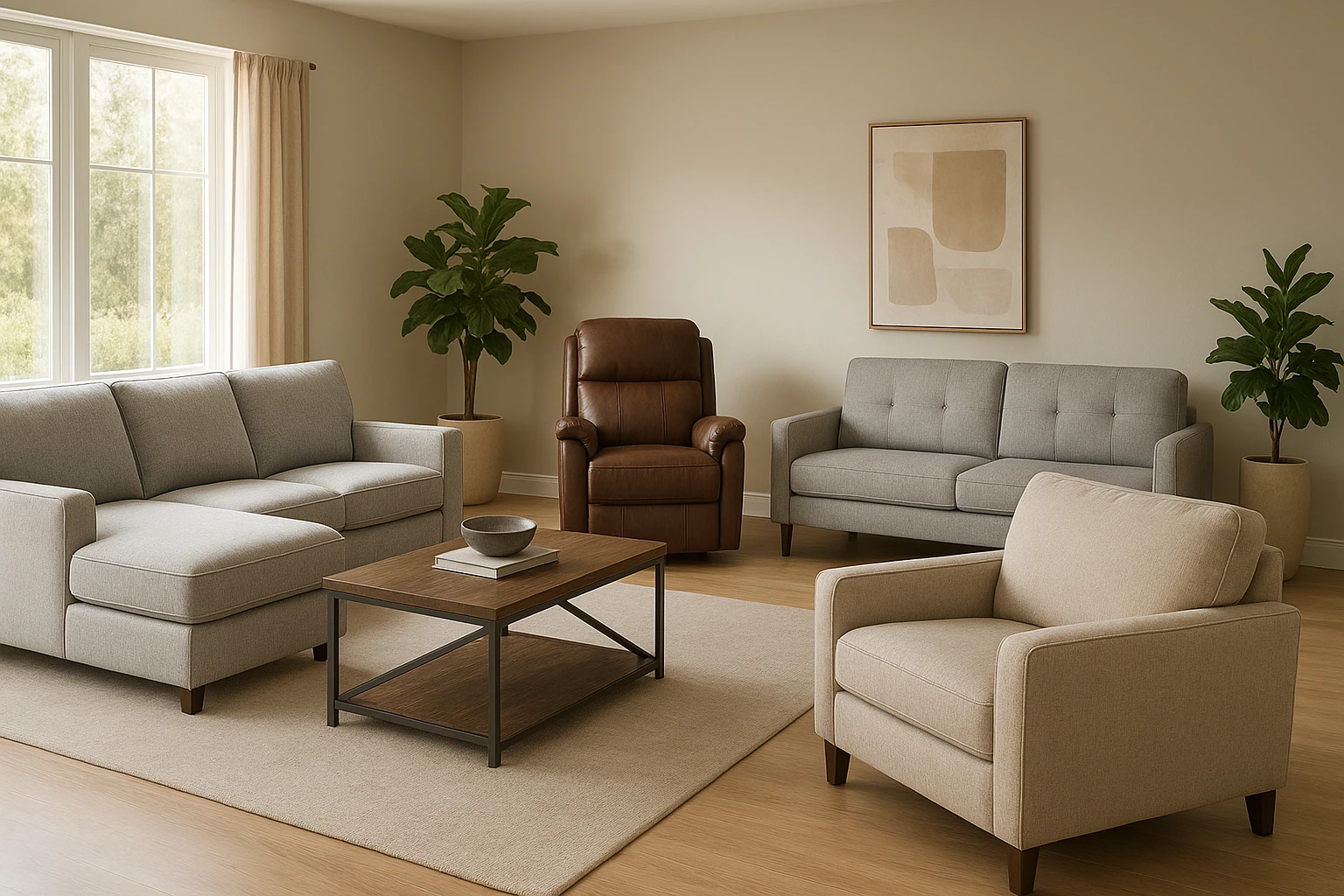
Explore the different sofa styles available and learn which type best suits your space, lifestyle, and design preferences.
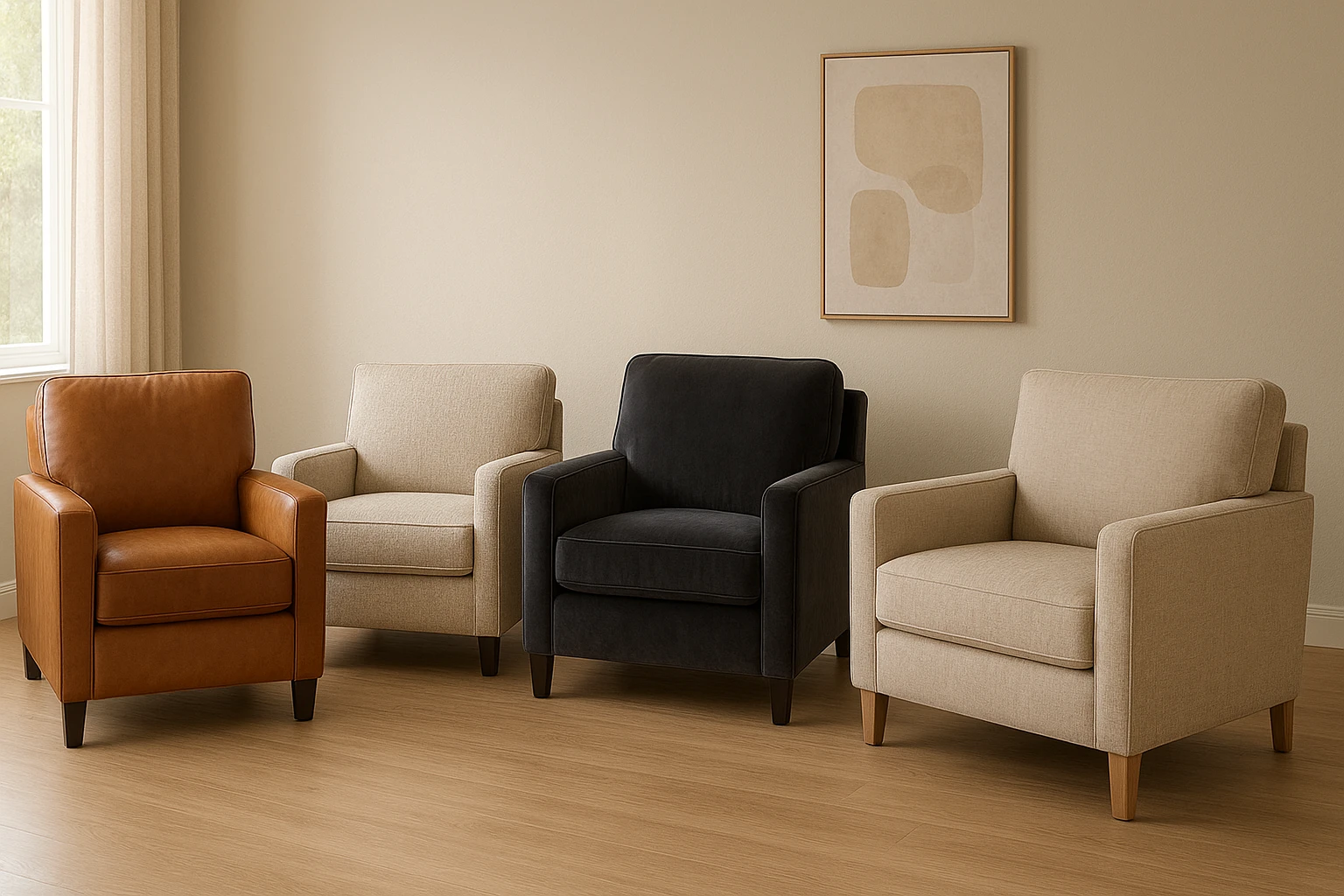
Understand the pros and cons of different upholstery materials to make an informed decision for your next sofa purchase.
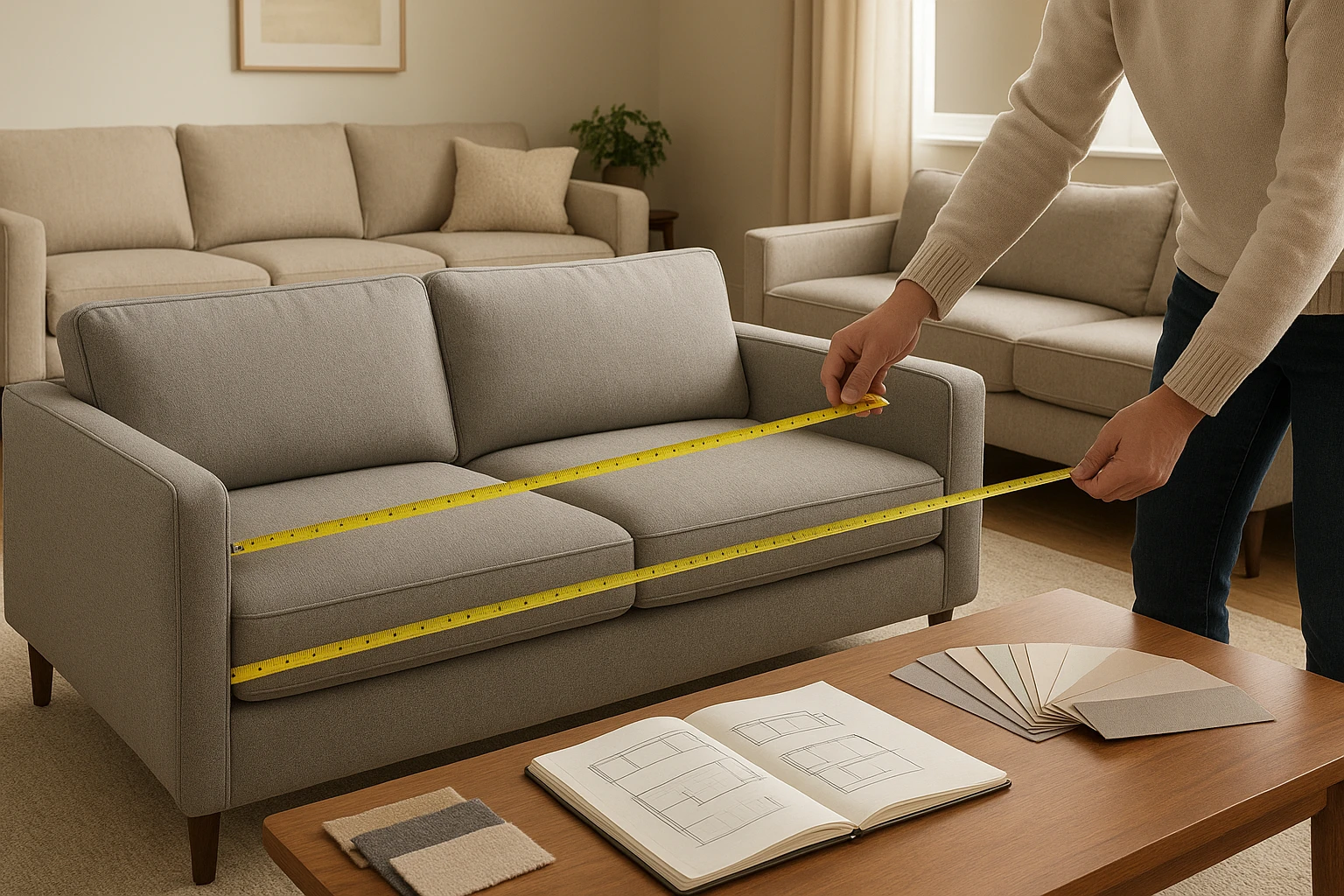
Step-by-step instructions for selecting the perfect sofa that fits your space, comfort needs, and design aesthetic.
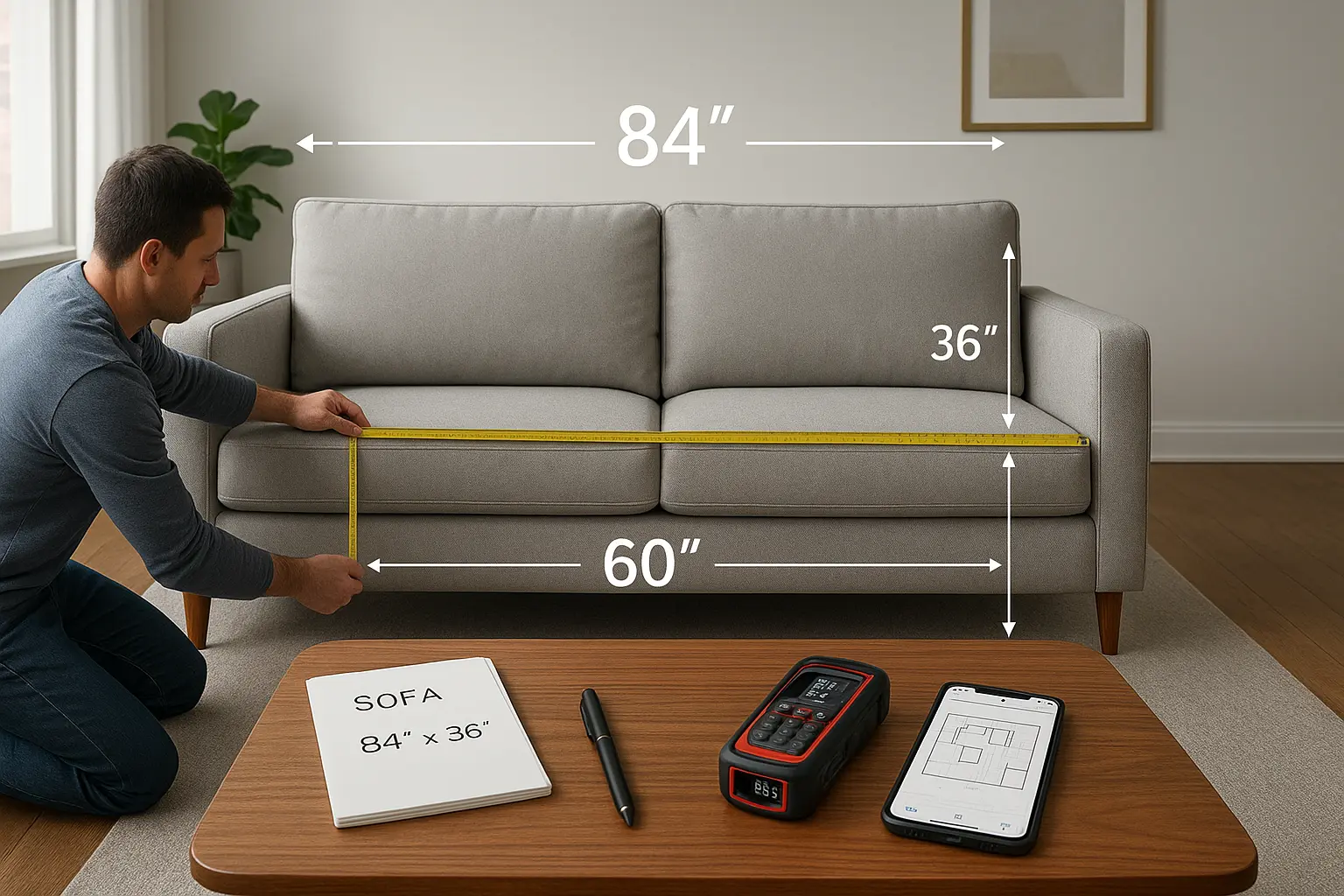
Learn how to properly measure your room and select a sofa size that maximizes comfort while maintaining proper traffic flow.
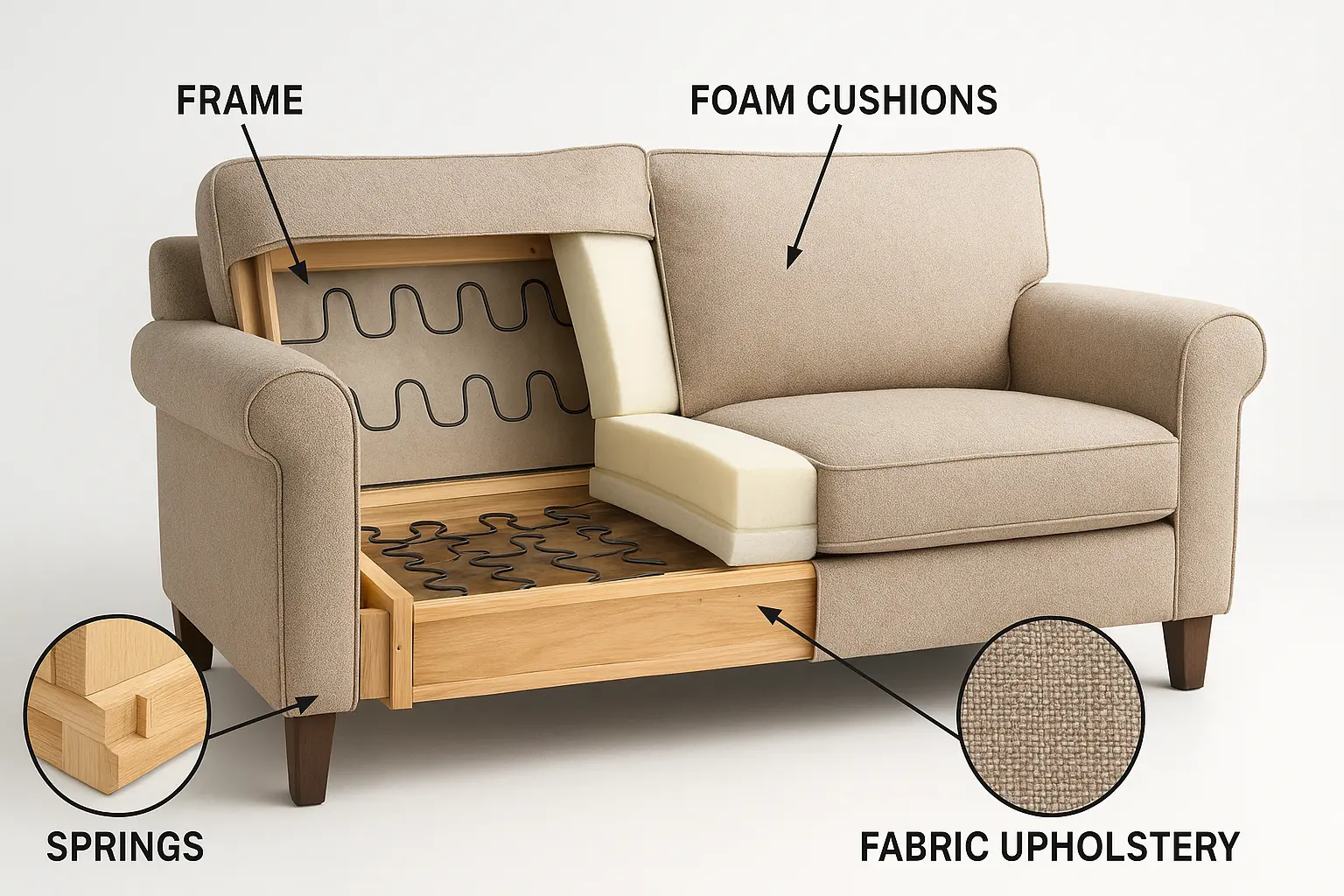
Discover what makes a quality sofa by understanding the components and construction methods used in furniture manufacturing.

Essential advice for navigating online sofa shopping, from interpreting product descriptions to understanding return policies.